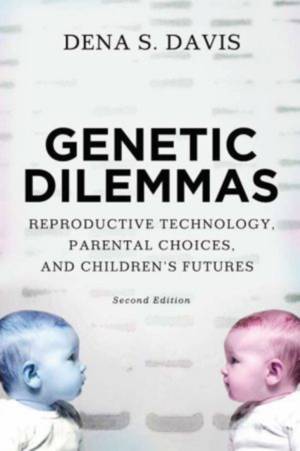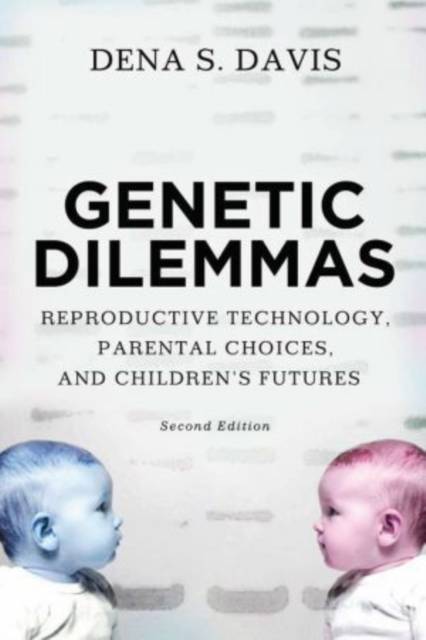
- Retrait gratuit dans votre magasin Club
- 7.000.000 titres dans notre catalogue
- Payer en toute sécurité
- Toujours un magasin près de chez vous
- Retrait gratuit dans votre magasin Club
- 7.000.000 titres dans notre catalogue
- Payer en toute sécurité
- Toujours un magasin près de chez vous
Genetic Dilemmas
Reproductive Technology, Parental Choices, and Children's Futures
Dena S Davis
Livre broché | Anglais
55,45 €
+ 110 points
Format
Description
What limits the genetic choices parents make for their children? Is it okay to select the sex of our children, or for deaf parents to select deaf children? In this second edition of Genetic Dilemmas, Davis argues that parental reproductive autonomy should be limited by respect for the future autonomy of the children created by these measures. Praise for the first edition: "A thoughtful, timely and comprehensive look at genetics in the modern era by a recognized scholar of both their legal and humanistic implications. An excellent read!" -R. Alta Charo, Professor of Law and Medical Ethics, University of Wisconsin- Madison. "Dena Davis has been the most consistent and important voice insisting that we take seriously the concept of each child's right to an open future, and what respecting that right would mean for new technologies in genetics and reproduction. This engaging new book is the work of a thoughtful and humane scholar, and deserves a broad readership." -Thomas H. Murray, President of The Hastings Center "Dena Davis offers an engaging, informative and provocative argument in Genetic Dilemmas. Her primary accomplishment is to draw much-needed attention to the interests of the child in reproductive decision-making...she has succeeded admirably." -Mary Terrell White, Medical Humanities Review "People now face a dizzying array of choices about reproduction-from sex selection to cloning, from prenatal screening to genetic enhancement. In this engaging and path-breaking book, Dena Davis intelligently and compassionately explores the often-ignored impact of these choices on the children that are created and the society in which they will be raised." -Lori Andrews, Professor of Law, Chicago-Kent College of Law.
Spécifications
Parties prenantes
- Auteur(s) :
- Editeur:
Contenu
- Nombre de pages :
- 224
- Langue:
- Anglais
Caractéristiques
- EAN:
- 9780195374384
- Date de parution :
- 30-10-09
- Format:
- Livre broché
- Format numérique:
- Trade paperback (VS)
- Dimensions :
- 137 mm x 206 mm
- Poids :
- 226 g







